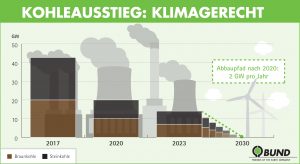Dresden, 22.10.2019
Heliatek, the world's leading provider of organic solar energy solutions, announces that its award-winning technology has been certified by TÜV Rheinland as having a carbon footprint of less than 16 kg CO2e/m2 in a Life Cycle Assessment (LCA). For a sustainable future in the face of ever increasing climate change, the planet's growing energy needs must be met by environmentally friendly low carbon energy sources. Heliatek has developed industrial grade organic solar films that are suitable for almost any building surface and help to significantly avoid greenhouse gas emissions.
After less than 3 months, the organic solar films studied already save the CO2e (CO2 equivalent) produced during the entire life cycle, from production to disposal. "We can proudly announce that we offer one of the most environmentally friendly ways to generate electricity and significantly avoid greenhouse gas emissions. The unique composition of our organic solar films without toxic materials and with PET based protective films makes even the disposal of the modules at the end of their life easy and at the same time environmentally conscious," says Guido van Tartwijk, CEO of Heliatek.
In order to compare the carbon footprint with other solar technologies, all results must be converted into g CO2e/kWh. This value takes into account the lifetime electricity generation for a given location. For Southern Europe, HeliaSol® has a carbon footprint of only 5-7 g CO2e/kWh (7-9 g CO2e/kWh in Central Europe) and thus already significantly undercuts all current solar technologies.
Standard modules based on crystalline silicon achieve values of 40 - 100 g CO2e/kWh depending on the installation site and the origin of the modules. "With the planned improvement in our efficiency, we will further reduce the carbon footprint of our product to become the energy source with the lowest CO2 footprint - including hydropower, wind and solar energy. This is a truly green product," says Jan Birnstock, CTO of Heliatek.
Heliatek is currently installing the new production line for the series production of its unique OPV solar films. The production line is in the start-up phase and will produce organic solar films with an annual capacity of up to 1 million m² from mid-2020.
About the TÜV Rheinland life cycle assessment
TÜV Rheinland has certified Heliatek's HeliaSol® , as one of the first companies in the solar industry, in a life cycle assessment according to ISO 14040/44. This analysis provides a structured and comprehensive method for quantifying energy and material flows and their potential environmental impact. The LCA analyzes the environmental impact of all phases of a product's life, from raw material procurement, through production and use, to disposal at the end of the product's life, including all transport and delivery routes ("cradle-to-grave"). All site-related conversions of the TÜV values were carried out by Heliatek.
The TÜV Rheinland certificate is available online at the ID number below and can be accessed by scanning the following QR code:

About Heliatek
As the technology leader in organic photovoltaics, Heliatek develops, produces and distributes industrial organic PV solar solutions for almost any building surface (horizontal, vertical, curved, rigid and flexible). Heliatek is synonymous with energy solutions designed for various traditional applications that were previously impossible due to their unique properties - they are ultra-light, flexible and truly green. HeliaSol® is a ready-made solution, ideal for retrofitting existing buildings. HeliaFilm® is a tailor-made solar film for companies in the construction and building materials industries, which can be integrated into their façade or roofing system products. Heliatek currently employs around 150 people at its sites in Dresden and Ulm in Germany.
Research and development work as well as the installation of production technology were supported by the Free State of Saxony, the Federal Republic of Germany and the European Union.
Keywords: DE-News, Renewable, News Blog Saxony, PV, Life cycle assessment, Ecology








